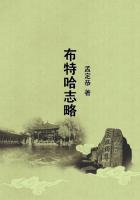No one with the slightest knowledge of Russia will suppose for a moment that this elaborate mechanism sprang suddenly into existence when the decree was signed.On the contrary, all stages of industrial conscription exist simultaneously even today, and it would be possible by going from one part of Russia to another to collect a series of specimens of industrial conscription at every stage of evolution, just as one can collect all stages of man from a baboon to a company director or a Communist.Some of the more primitive kinds of conscription were not among the least successful.For example, at the time(in the spring of the year)when the Russians still hoped that the Poles would be content with the huge area of non-Polish territory they had already seized, the army on the western frontwas without any elaborate system of decrees being turned into a labor army.The work done was at first ordinary country work, mainly woodcutting.They tried to collaborate with the local "Troikas," sending help when these Committees asked for it.This, however, proved unsatisfactory, so, disregarding the "Troikas," they organized things for themselves in the whole area immediately behind the front.They divided up the forests into definite districts, and they worked these with soldiers and with deserters.Gradually their work developed, and they built themselves narrow-gauge railways for the transport of the wood.Then they needed wagons and locomotives, and of course immediately found themselves at loggerheads with the railway authorities.Finally, they struck a bargain with the railwaymen, and were allowed to take broken- down wagons which the railway people were not in a position to mend.Using such skilled labor as they had, they mended such wagons as were given them, and later made a practice of going to the railway yards and in inspecting "sick" wagons for themselves, taking out any that they thought had a chance even of temporary convalescence.Incidentally they caused great scandal by finding in the Smolensk sidings among the locomotives and wagons supposed to be sick six good locomotives and seventy perfectly healthy wagons.Then they began to improve the feeding of their army by sending the wood theyhad cut, in the trains they had mended, to people who wanted wood and could give them provisions.One such train went to Turkestan and back from the army near Smolensk.Their work continually increased, and since they had to remember that they were an army and not merely a sort of nomadic factory, they began themselves to mobilize, exclusively for purposes of work, sections of the civil population.I asked Unshlicht, who had much to do with this organization, if the peasants came willingly.He said, "Not very," but added that they did not mind when they found that they got well fed and were given packets of salt as prizes for good work."The peasants," he said, "do not grumble against the Government when it shows the sort of common sense that they themselves can understand.We found that when we said definitely how many carts and men a village must provide, and used them without delay for a definitepurpose, they were perfectly satisfied and considered it right and proper.In every case, however, when they saw people being mobilized and sent thither without obvious purpose or result, they became hostile at once." I asked Unshlicht how it was that their army still contained skilled workmen when one of the objects of industrial conscription was to get the skilled workmen back into the factories.He said: "We have an accurate census of the army, and when we get asked for skilled workmen for such and such a factory, they go there knowing that they still belong to the army."That, of course, is the army point of view, and indicates one of the main squabbles which industrial conscription has produced.Trotsky would like the various armies to turn into units of a territorial militia, and at the same time to be an important part of the labor organization of each district.His opponents do not regard the labor armies as a permanent manifestation, and many have gone so far as to say that the productivity of labor in one of these armies is lower than among ordinary workmen.Both sides produce figures on this point, and Trotsky goes so far as to say that if his opponents are right, then not only are labor armies damned, but also the whole principle of industrial conscription."If compulsory labor- independently of social condition-is unproductive, that is a condemnation not of the laborarmies, but of industrial conscription in general, and with it of the whole Soviet system, the further development of which is unthinkable except on a basis of universal industrial conscription."But, of course, the question of the permanence of the labor armies is not so important as the question of getting the skilled workers back to the factories.The comparative success or failure of soldiers or mobilized peasants in cutting wood is quite irrelevant to this recovery of the vanished workmen.And that recovery will take time, and will be entirely useless unless it is possible to feed these workers when they have been collected.There have already been several attempts, not wholly successful, to collect the straying workers of particular industries.Thus, after the freeing of the oil-wells from the Whites, there was a general mobilization of naphtha workers.Many of these had bolted on or after the arrival of Krasnov or Denikin and gone far into Central Russia, settling where they could.Somonths passed before the Red Army definitely pushed the area of civil war beyond the oil-wells, that many of these refugees had taken new root and were unwilling to return.I believe, that in spite of the mobilization, the oil-wells are still short of men.In the coal districts also, which have passed through similar experiences, the proportion of skilled to unskilled labor is very much smaller than it was before the war.There have also been two mobilizations of railway workers, and these, I think, may be partly responsible for the undoubted improvement noticeable during the year, although this is partly at least due to other things beside conscription.In the first place Trotsky carried with him into the Commissariat of Transport the same ferocious energy that he has shown in the Commissariat of War, together with the prestige that he had gained there.Further, he was well able in the councils of the Republic to defend the needs of his particular Commissariat against those of all others.He was, for example able to persuade the Communist Party to treat the transport crisis precisely as they had treated each crisis on the front-that is to say, to mobilize great numbers of professed Communists to meet it, giving them in this case the especial task of getting engines mended and, somehow or other, of keeping trains on themove.
同类推荐
热门推荐















